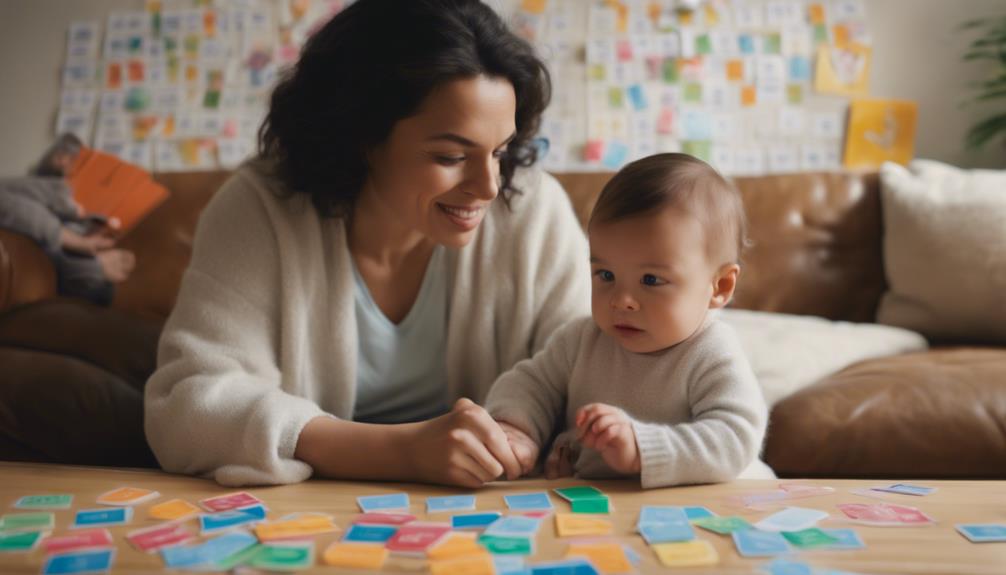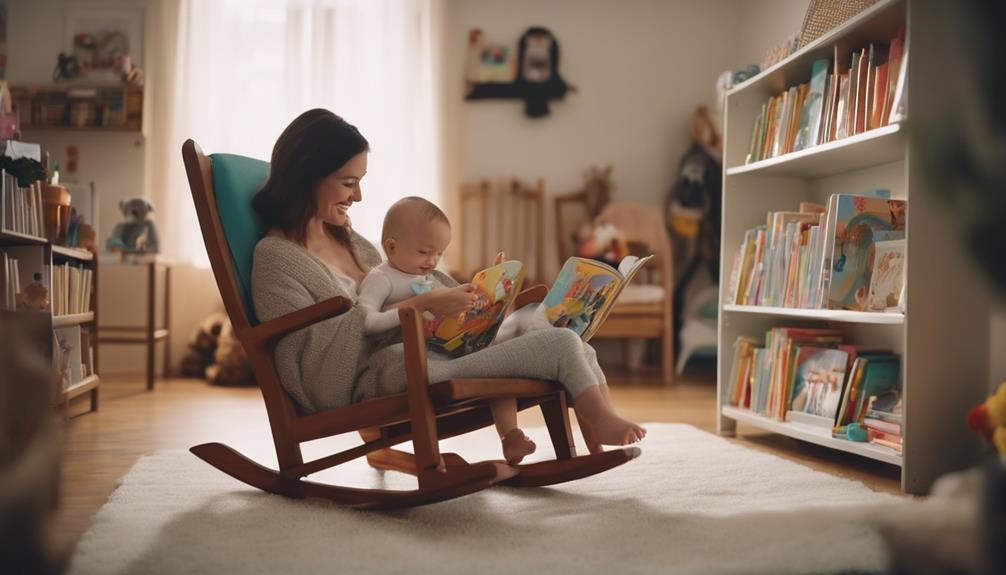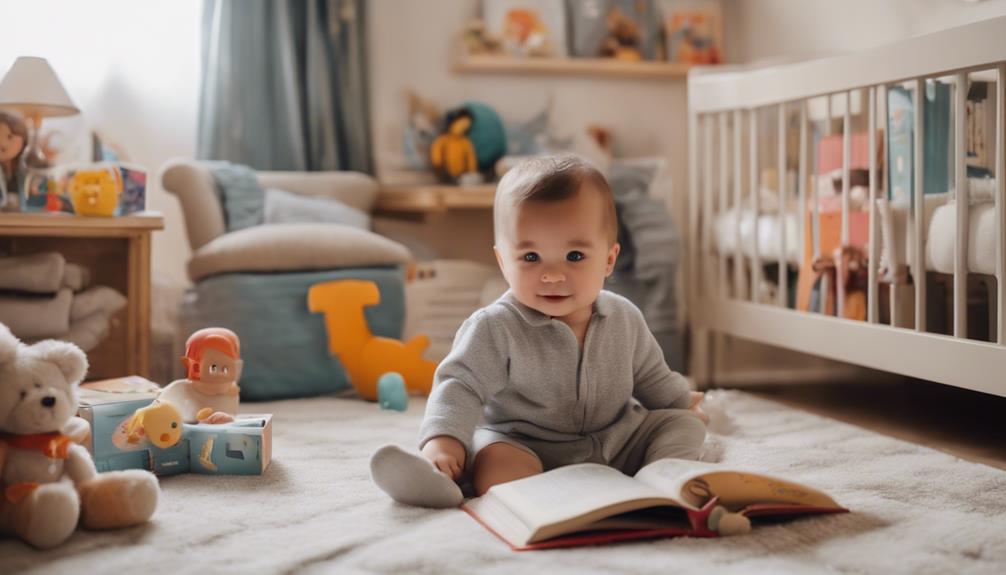To boost your baby’s brain development and language skills, it is recommended to start reading before their first birthday. This early habit helps with cognitive growth, vocabulary expansion, and pre-literacy skills. Moreover, it strengthens the special connection between you and your child. Professionals suggest starting this advantageous practice as early as you can for the best results. By beginning early, you establish a sturdy base for your baby’s future learning and growth. Further exploration of this subject can uncover the lasting advantages of this straightforward yet impactful activity.
Key Takeaways
- Start reading before the first birthday to aid brain development.
- Integrate reading into daily routines for cognitive skills and language acquisition.
- It's never too late to start reading to your baby.
- Reading supports brain development, vocabulary, and comprehension skills.
- Experts recommend initiating reading at any time for its benefits.
Benefits of Early Reading
Reading to your baby from an early age offers a wide range of benefits that contribute to their overall development. It's never too early to start reading to your little one. By exposing them to baby books and incorporating reading into their daily routine, you're actively supporting their brain development and language skills.
Studies have shown that babies who are read to early on demonstrate faster vocabulary development, building their vocabulary and enhancing their literacy skills. Reading to babies not only aids in pre-literacy skills but also strengthens the parent-child bond.
When you read to your baby, you aren't just entertaining them; you're helping them develop cognitively, socially, emotionally, and in problem-solving skills. Shared reading time isn't only a special bonding moment but also a predictor of gentler parenting.
Brain Development and Reading

Stimulating neural connections through reading to your baby from birth aids in their brain development. Early exposure to reading not only enhances language skills but also contributes to cognitive development and emotional well-being.
Research indicates that regularly reading to babies supports the growth of their vocabulary and comprehension skills, setting a strong foundation for future learning. By engaging in reading sessions with your baby, you're fostering the formation of essential neural connections in their developing brain, which is important for their overall early childhood development.
The American Academy of Pediatrics recommends reading to babies as an essential component of their upbringing. Providing this exposure to books and language before your baby's first birthday can have long-lasting positive effects on their cognitive abilities and literacy skills.
Embracing reading as a part of your routine with your baby can have a significant impact on their brain development and pave the way for a lifelong love of learning.
Best Books for Newborns
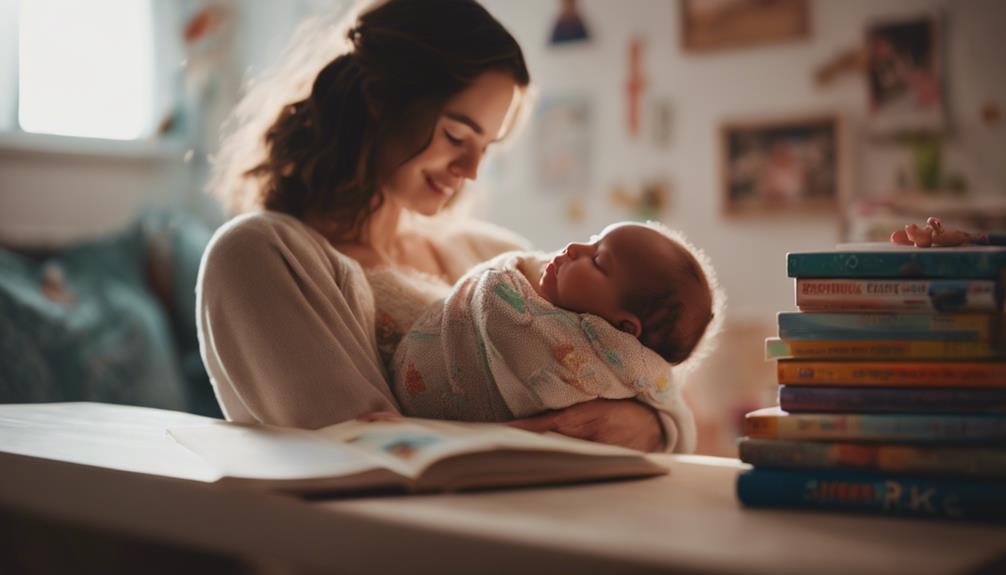
Ideal for visual stimulation in newborns, black-and-white baby books are a recommended choice for early reading experiences.
When selecting books for babies, consider the following options:
- Board Books: These sturdy books are perfect for little hands to explore without easily damaging the pages.
- Fabric Books: Soft and safe for babies to touch and even chew on, fabric books are a sensory delight.
- Interactive Features: Books with textures, flaps, or sounds can engage newborns and stimulate their developing senses.
For the best brain development, look for books that offer opportunities for interaction, such as those with interactive features. Rhyming books can help babies become familiar with the sounds of language, preparing them for future language skills.
Additionally, consider introducing bilingual or multilingual options to expose newborns to different languages from an early age, fostering a diverse linguistic environment in their early development.
Age-By-Age Reading Guide
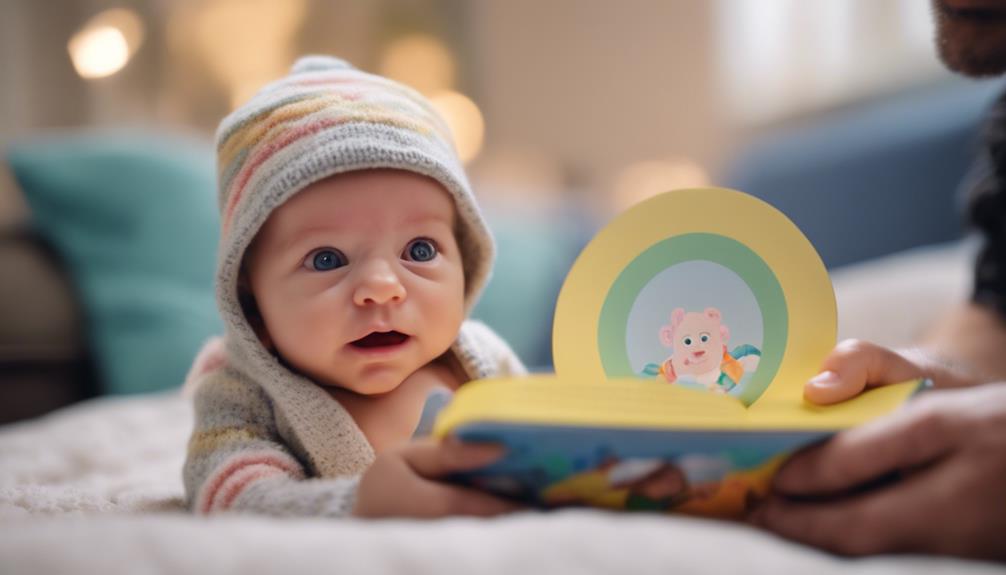
Consider the age-appropriate reading activities that can benefit your baby as they grow and develop.
Reading to your baby early on is vital for their development. It's important to start reading to your baby even before their first birthday to promote brain development and bonding.
In the early years, incorporate reading into your daily routine to reap the benefits. Beginning to read to your baby at a young age, even if it's just for a few minutes each day, can have a significant impact on their growth.
Experts recommend initiating this valuable activity at any time to support your baby's development. Reading books to your baby is a simple yet effective way to stimulate their cognitive skills and language acquisition.
Raising a Reader

To foster a love for reading in your baby, prioritize incorporating books into your daily interactions. Reading aloud to your baby not only supports their development but also plays a vital role in their brain development.
Here are some key points to keep in mind when raising a reader:
- Start Early: Experts recommend beginning to read to babies before their first birthday for best benefits.
- Integrate into Daily Routines: Reading to your baby can be seamlessly incorporated into daily routines, even with short sessions.
- Initiate at Any Time: Remember, it's never too late to start reading to your baby. Starting early, even for a few minutes a day, can have significant positive impacts on their development.
Frequently Asked Questions
When Should I Read to My Infant?
You should read to your infant early on to foster language and cognitive development. Introducing books before their first birthday is ideal. Even brief reading moments can have lasting benefits, shaping a lifelong love for learning.
When Should I Start Reading to My Baby While Pregnant?
Embrace the magic of creating a bond through words. Begin reading to your baby in the womb as early as 18-25 weeks. Your voice lays the foundation for their language development, fostering a love for stories.
When Should You Read When You Have a Baby?
Start reading to your baby early on for their brain development. Incorporate short reading sessions into daily routines. Experts recommend beginning before the first birthday. Even a few minutes a day can be beneficial.
When Should I Start Reading My Child?
Start reading to your child as early as possible. Even before their first birthday is ideal. Incorporate short reading sessions into your daily routine. A few minutes a day can positively impact their development.
Should You Teach Your Baby to Read?
You don't need to formally teach your baby to read. Instead, focus on reading to them from an early age. Sharing books and fostering a love for reading through bonding experiences benefits their language development and future literacy skills.
Conclusion
Start reading to your baby as soon as possible to reap the benefits of early literacy development. While it may seem challenging at first, even newborns can benefit from the soothing sound of your voice and exposure to language.
By incorporating reading into your daily routine, you're laying the foundation for a lifelong love of reading and learning.
Remember, it's never too early to start investing in your child's future through the simple act of reading together.



